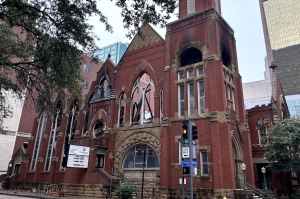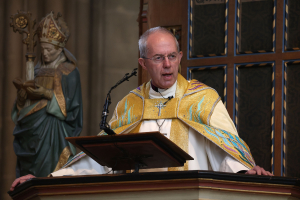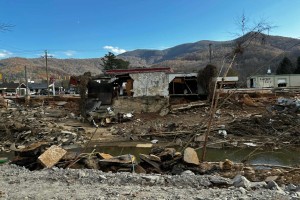Warren: Local Church Pastors 'Irreplaceable' in HIV/AIDS Battle
The way the world looks at churches must change, said Rick Warren on the second day of Saddleback Church' s HIV/AIDS Conference in Lake Forest, Calif.
LAKE FOREST, Calif. – The way the world looks at churches must change, said Rick Warren on the second day of Saddleback Church’s HIV/AIDS Conference in Lake Forest, Calif.
“Do you want to know what makes Rick Warren tick? I trust pastors,” said the senior pastor of Saddleback, whose “Purpose Driven” paradigm has spread to a network of 27,000 churches worldwide. Warren is hosting the three-day conference address how churches must be mobilized and how they can be mobilized.
Warren’s trust for pastors propelled him to advocate that the local church must be supported and given credit for the work they do on the front lines.
According to the “Purpose Driven” author, there are seven compelling reasons for why churches are the best choice to solve the world’s global ills.
For one thing, the church has the largest participation rate, Warren said. The enormous numbers involved in church also means it has the widest distribution.
“There are 2.1 billion followers of Christ. The Church is bigger than China. If only half of these people follow, that is 1 billion,” said Warren. “It is the largest force for good in the world. Nothing even comes close.”
Warren compared the church to the professional sporting world.
“This weekend about 120 million will go to church. That is more people than all professional events in the world combined in a year,” he said. “It is a sleeping giant that can be mobilized.”
The church’s wide distribution network means there are churches in villages and communities that don’t have schools, a fire department, or health clinics, said Warren.
“Christianity is the only global organization in the world,” he said.
The church also has the fastest expansion rate than any other organization. In order to defeat the AIDS pandemic, he said, the organization must grow at a faster rate. The church fulfills this criterion.
The Church has the simplest administration. Each local church is truly grassroots, and grassroots is always faster than centralized administration, he said.
The best examples of this are the Tsunami and Katrina, he said. The Church was there long before FEMA, and the Red Cross will have left.
When he asked the Red Cross how many of their meals were prepared by the churches and they answered “95 percent,” Warren wanted to know, “then why is the Red Cross getting the credit?”
If churches were to get the credit they deserve, then there would be that many more supporting the local churches.
In fact, he said, the role of parachurch ministries and NGOs are to serve the church, to support and equip the churches so that church’s authority is reaffirmed.
“The parachurch ministries and the churches must have a reversal of role,” said Warren. “Put churches in front because there are far more of them and have the parachurches supporting them.”
The church is also the longest continual organization, having lasted over 2,000 years. It’s got the strongest authoritarian voice, and the highest motivation which is love, he continued.
“The church will be here until Christ returns,” said Warren. “It’s eternal.”
During the three-day conference, it was reaffirmed that local church pastors are “irreplaceable” in combating HIV/AIDS.
“Pastors are the gatekeepers to two billion potential foot soldiers in this world,” Warren stated. “No one else has this potential.”
The conference on Wednesday – the second day of the conference – addressed erasing the stigma associated with HIV/AIDS, which Kay Warren spoke on. Edward C. Green, PhD., spoke on prevention methods, especially stating his support of Uganda’s method of affirming abstinence and fidelity over and above condom usage. Bishop Charles Blake of West Angeles Church of God in Christ in Los Angeles, the Rev. Kirbyjon Caldwell of Windsor Village United Methodist Church in Houston, and the Rev. Francis Karemera of the Anglican Diocese of Kigali, Rwanda, all addressed how to begin an HIV/AIDS ministry in a local church.





























